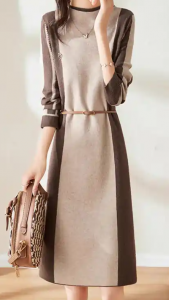Best Vegan Leather Alternatives for a Greener Closet
Introduction to Vegan Leather
In today’s eco-conscious world, the choice of materials for fashion is more critical than ever. Vegan leather, a sustainable alternative to traditional leather, offers consumers a chance to create a stylish wardrobe without compromising on their environmental values.
Environmental Impact of Traditional Leather
Traditional leather production involves extensive resource use and chemical treatments that harm both animals and the environment. The demand for leather has contributed to deforestation and pollution in various regions.
Criteria for Choosing Vegan Leather Alternatives
When selecting vegan leather, factors such as durability, environmental impact, and comfort play significant roles. These alternatives strive to mimic the look and feel of traditional leather while offering a greener choice.

Types of Vegan Leather
Polyurethane (PU) Leather
PU leather is a synthetic material that mimics the appearance of real leather. It’s versatile, affordable, and widely used in fashion and upholstery. However, its production involves petroleum-based chemicals, raising concerns about environmental sustainability.
Piñatex (Pineapple Leather)
Piñatex is made from pineapple leaf fibers, a byproduct of the fruit industry. It’s biodegradable, lightweight, and has a unique texture. Its production supports agricultural communities and reduces waste.
Cork Leather
Cork leather is derived from the bark of cork oak trees. It’s naturally waterproof, lightweight, and soft to the touch. Cork harvesting doesn’t harm the trees, making it a highly sustainable option.
Other Innovative Vegan Leather Alternatives
Mushroom Leather
Mushroom leather, or Mycelium leather, is grown using fungal mycelium. It’s biodegradable, requires minimal resources to produce, and can be molded into various textures. Its potential in sustainable fashion is promising.
Apple Leather
Apple leather utilizes waste from the apple industry, such as cores and peels. It’s durable, breathable, and has a luxurious feel. Its production helps reduce agricultural waste and supports circular economy principles.
Recycled PET Leather
Recycled PET leather is made from recycled plastic bottles. It’s durable, water-resistant, and reduces plastic waste in landfills and oceans. Its popularity is growing in outdoor and fashion industries.
Comparative Analysis of Vegan Leather Alternatives
Vegan leather alternatives are evaluated based on performance, cost, and availability. While some materials excel in durability and water resistance, others prioritize biodegradability and ethical sourcing.
Consumer Trends and Acceptance
As consumers become more aware of environmental issues, there’s a growing demand for sustainable fashion choices. Vegan leather products are gaining acceptance in mainstream markets, driven by ethical consumerism.
Tips for Maintaining Vegan Leather Products
To prolong the lifespan of vegan leather products, regular cleaning and conditioning are recommended. Each material may have specific care instructions to maintain its appearance and durability.
Challenges and Limitations
Despite their benefits, vegan leather alternatives face challenges such as biodegradability and public perception. Addressing these issues requires ongoing research and innovation in material science.
The Future of Vegan Leather
Advancements in sustainable materials promise a brighter future for vegan leather. Innovations in production techniques and material sourcing will continue to expand the market for eco-friendly fashion choices.
Case Studies of Brands Using Vegan Leather
Several fashion brands have successfully integrated vegan leather into their collections, demonstrating the market viability and consumer appeal of sustainable alternatives.
Ethical Considerations in Material Choices
Choosing vegan leather supports ethical practices in fashion, promoting animal welfare and sustainable livelihoods for communities involved in material production.
Conclusion
Vegan leather alternatives offer a sustainable solution for consumers seeking stylish and eco-friendly fashion choices. By prioritizing materials that minimize environmental impact and support ethical practices, individuals can contribute to a greener future.
FAQs
- What is vegan leather made from?
- Is vegan leather as durable as traditional leather?
- How can I differentiate between various types of vegan leather?
- Are vegan leather products more expensive?
- What are the environmental benefits of choosing vegan leather?
This structured approach ensures the article is informative, engaging, and optimized for both SEO and reader interest in sustainable fashion choices












Post Comment